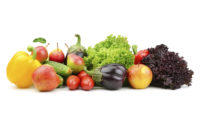The U.S. Department of Agriculture (USDA), the U.S. Environmental Protection Agency (EPA) and the U.S. Food and Drug Administration (FDA), Washington, D.C., announced a new partnership with the Food Waste Reduction Alliance (FWRA), Arlington, Va., to formalize industry education and outreach efforts with the Grocery Manufacturers Association (GMA), Arlington, Va.; the Food Marketing Institute (FMI), Arlington, Va.; and the National Restaurant Association (NRA), Washington, D.C., the founding partners of FWRA.
The FWRA represents three major sectors of the supply chain—food manufacturing, retail and restaurant and foodservice. The alliance aims to reduce the amount of food waste generated; increase the amount of safe, nutritious food donated to those in need and divert food waste from landfills.
“The FDA strongly supports our shared goal of reducing the amount of food that Americans waste through important efforts like today’s agreement,” says Ned Sharpless, acting FDA commissioner. “The issues of food waste and food safety go hand in hand, and we will continue to work with our federal partners and other stakeholders on enhancing our efforts to reduce food waste and do it safely. We are committed to doing all that we can to support safe and sound food policy decisions that are good for our families, good for our communities and good for our planet.”
“USDA shares many common goals with the Food Waste Reduction Alliance, including our belief in the power of teamwork,” says Sonny Perdue, U.S. Secretary of Agriculture. “We are proud to join this public-private partnership to prompt action throughout the food system.”
“EPA is proud to build upon the Winning on Reducing Food Waste Initiative through this partnership with leaders of the Food Waste Reduction Alliance,” says Andrew Wheeler, EPA administrator. “Reducing food loss and waste has many environmental and social benefits. By collaborating with these major segments of the food supply chain, we are making progress toward the national goal to reduce food loss and waste by 50% by 2030.”






